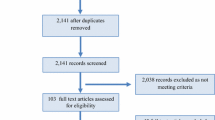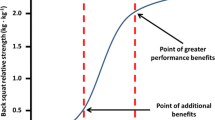Abstract
Purpose
The admission process for medical school relies on objective and subjective measures of personal achievement, and selecting successful medical students is a daunting task for admission committees. While there is a significant body of literature examining MCAT scores and undergraduate grade point average (GPA) with medical school performance, there is a paucity of research on impact of specific student accomplishments on future performance. We hypothesize participation in a varsity collegiate sport will correlate with higher performance during medical school.
Methods
A retrospective review of four medical school classes at a single institution was completed. Each student’s admission application was examined for at least 1 year of participation in a varsity-level sport at their respective undergraduate institution. A total of 62 athletes (16.36%) were identified out of 441 total students. Multiple medical school performance metrics were obtained for each student.
Results
There was no difference in MCAT scores between athletes and non-athlete medical students. There was a significant difference in step 1, step 2 CK, NBME shelf exams, cumulative year 3 performance, and AOA status with the athletes outperforming their peers.
Conclusion
Students who participate in collegiate varsity athletics excel in medical school. One explanation for this finding may be participation in high-stakes athletic training and competition results in development of specific attributes beneficial in medical school. These attributes may include receptiveness to criticism, time management, resiliency, team participation, and performing under pressure. Additional research is needed to elucidate the attributes that determine improved medical school performance, such that medical educators can utilize this knowledge to better prepare all students for the rigors of medical school.
Similar content being viewed by others
References
Tables, American Association of Medical Colleges. August 15, 2018; Available from: https://www.aamc.org/download/321442/data/factstablea1.pdf. Accessed December 5, 2018.
American Association of Medical Colleges. Available from: https://www.aamc.org/download/462316/data/mcatguide.pdf. Accessed January 17, 2019.
Donnon T, Paolucci EO, Violato C. The predictive validity of the MCAT for medical school performance and medical board licensing examinations: a meta-analysis of the published research. Acad Med. 2007;82(1):100–6.
Dunleavy DM, Kroopnick MH, Dowd KW, Searcy CA, Zhao X. The predictive validity of the MCAT exam in relation to academic performance through medical school: a national cohort study of 2001–2004 matriculants. Acad Med. 2013;88(5):666–71.
National Resident Matching Program. Results of the2016 NRMP Program director survey. Washington, DC: National Resident Matching Program; 2016. Available from: http://www.nrmp.org/wp-content/uploads/2016/09/NRMP-2016-Program-Director-Survey.pdf. Accessed November 12, 2018.
Gauer JL, Jackson JB. The association of USMLE step 1 and step 2 CK scores with residency match specialty and location. Med Educ Online. 2017;22(1):1358579. https://doi.org/10.1080/10872981.2017.1358579.
Cullen MW, Reed DA, Halvorsen AJ, Wittich CM, Kreuziger LMB, Keddis MT, et al. Selection criteria for internal medicine residency applicants and professionalism ratings during internship. Mayo Clin Proc. 2011;86(3):197–202. https://doi.org/10.4065/mcp.2010.0655.
Wagner JG, Schneberk T, Zobrist M, et al. What predicts performance? A multicenter study examining the association between resident performance, rank list position, and USMLE step 1 scores. J Emerg Med. 2016;52(3):332–40.
Chole RA, Odgen MA. Predictors of future success in otolaryngology residency applicants. Arch Otolaryngol Head Neck Surg. 2012;138(8):707–12.
Schaverien MV. Selection for surgical training: an evidence-based review. J Surg Educ. 2016;73(4):721–9.
Dong T, Saguil A, Artino AR, et al. Relationship between OSCE scores and other typical medical school performance indicators: a 5-year cohort study. Mil Med. 2012;177(9 Suppl):44–6. https://doi.org/10.7205/MILMED-D-12-00237.
Ferguson E, James D, Madeley L. Factors associated with success in medical school: systematic review of the literature. BMJ. 2002;324(7343):952–7. https://doi.org/10.1136/bmj.324.7343.952.
Reed DA, West CP, Mueller PS, Ficalora RD, Engstler GJ, Beckman TJ. Behaviors of highly professional resident physicians. JAMA. 2008;300(11):1326–33. https://doi.org/10.1001/jama.300.11.1326.
Van Dijk I, Lucassen PL, van Weel C, et al. A cross-sectional examination of psychological distress, positive mental health and their predictors in medical students in their clinical clerkships. BMC Med Educ. 2017;17:219. https://doi.org/10.1186/s12909-017-1035-8.
Hood AB, Craig AF, Ferguson BW. The impact of athletics, part-time employment, and other activities on academic achievement. J Coll Stud Dev. 1992;33(5):447–53.
Dundes L, Marx J. Balancing work and academics in college: why do students working 10 to 19 hours per week excel? J Coll Stud Retent. 2006;8(1):107–20. https://doi.org/10.2190/7UCU-8F9M-94QG-5WWQ.
Taylor J. Predicting athletic performance with self-confidence and somatic and cognitive anxiety as a function of motor and physiological requirements in six sports. J Pers. 1987;55(1):139–53. https://doi.org/10.1111/j.1467-6494.1987.tb00432.x.
Simons HD, Rheenen DV, Covington MV. Academic motivation and the student athlete. J Coll Stud Dev. 1991;40(2):151–61.
Papp KK, Polk HC, Richardson D. The relationship between criteria used to select residents and performance during residency. Am J Surg. 1997;173:326–9.
Zuckerman SL, Kelly PD, Dewan MC, et al. Predicting resident performance from preresidency factors: a systematic review and applicability to neurosurgical training. World Neurosurg. 2018;110:475–84. Feb 2018.
Spitzer AM, Gage MJ, Looze CA, et al. Factors associated with successful performance in an orthopedic surgery residency. J Bone Joint Surg Am. 2009;91:2750–5.
Babekno O, Mosewich A. In sport and now in medical school: examining students’ well-being and motivations for learning. Int J Med Educ. 2017;8:336–42.
Bartone PT, Kelly D, Matthews MD. Psychological hardiness predicts adaptability in military leaders: a prospective study. Int J Sel Assess. 2013;21(2):200–10.
Ray R, Brown J. Reassessing student potential for medical school success: distance traveled, grit, and hardiness. Mil Med. 2015;180(4):138–41.
Taylor J. Available from: https://www.psychologytoday.com/us/experts/jim-taylor-phd. Accessed August 21, 2018.
Duckworth A. Grit. 2016, New York: Scribner (DLC) 2015044753.
Author information
Authors and Affiliations
Corresponding author
Ethics declarations
Conflict of Interest
The authors declare that they have no conflict of interest.
Ethical Approval
This study was approved by the Wake Forest School of Medicine IRB. IRB00043836.
Additional information
Publisher’s Note
Springer Nature remains neutral with regard to jurisdictional claims in published maps and institutional affiliations.
Rights and permissions
About this article
Cite this article
Strowd, L.C., Gao, H., O’Brien, M.C. et al. Performing Under Pressure: Varsity Athletes Excel in Medical School. Med.Sci.Educ. 29, 715–720 (2019). https://doi.org/10.1007/s40670-019-00730-4
Published:
Issue Date:
DOI: https://doi.org/10.1007/s40670-019-00730-4




